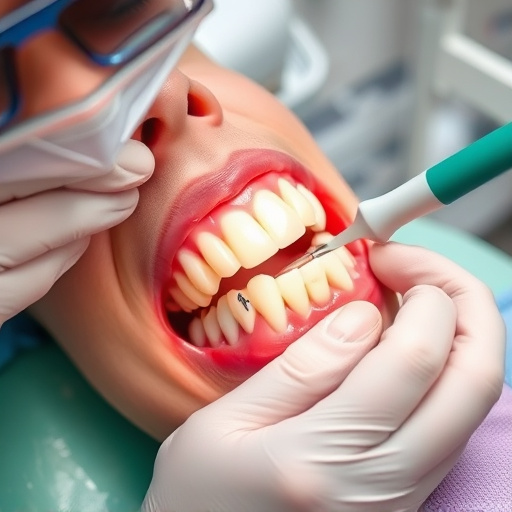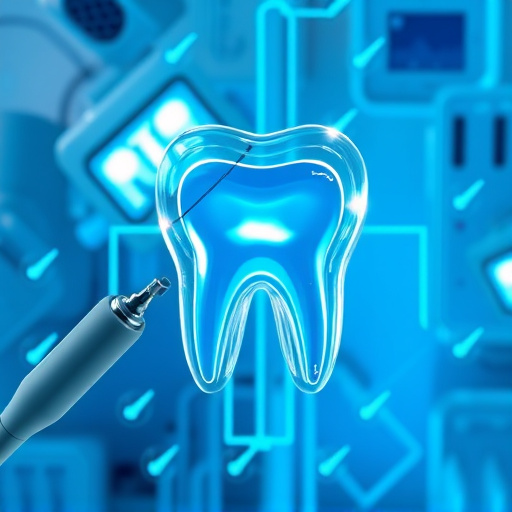Single tooth implants offer a durable and natural solution for missing teeth, securing independently into the jawbone through osseointegration. They preserve surrounding tooth structure, promote bone health, and can last a lifetime with proper care, enhancing confidence and smile aesthetics.
Single tooth implants offer a revolutionary solution for tooth replacement, providing a strong and stable alternative without compromising surrounding teeth. This advanced dental procedure eliminates the need for support from nearby teeth, ensuring optimal oral health and aesthetics. In this comprehensive guide, we’ll explore how single tooth implants work, their numerous benefits, and success rates, empowering you to make an informed decision about your oral health journey.
- Understanding Single Tooth Implants: A Comprehensive Overview
- The Advantage: No Support From Nearby Teeth Required
- Procedure, Benefits, and Success Rates: A Deep Dive
Understanding Single Tooth Implants: A Comprehensive Overview

Single tooth implants represent a groundbreaking advancement in modern dentistry, offering a long-lasting solution for tooth replacement that doesn’t compromise the health or stability of surrounding teeth. Unlike traditional bridges, which rely on adjacent teeth for support, single tooth implants are independently secured directly into the jawbone. This innovative approach provides several key benefits.
First and foremost, it preserves the natural structure and function of nearby teeth, eliminating the need for filing or reducing healthy teeth to accommodate dental crowns. Moreover, implants promote bone health by stimulating the jawbone through osseointegration, preventing atrophy that can occur after tooth loss. With proper care, single tooth implants can last a lifetime, making them a reliable choice for those seeking effective and lasting tooth repair. In addition, their aesthetic appeal, matching seamlessly with natural teeth, ensures confidence in one’s smile, even when undergoing emergency dental care.
The Advantage: No Support From Nearby Teeth Required

One of the significant advantages of single tooth implants is that they don’t require any support from neighboring teeth. Unlike traditional bridges, which rely on nearby teeth for stability, implants stand alone, preserving the integrity of your natural dentition. This is a game-changer for patients who might be concerned about damaging healthy teeth during the restoration process. With implants, you can say goodbye to drilling and filing adjacent teeth, ensuring that your preventive dentistry efforts are focused solely on maintaining overall oral health.
Additionally, this approach aligns perfectly with family dentistry practices, as it minimizes the need for extensive procedures involving multiple teeth. Moreover, in cases requiring emergency dental care, single tooth implants can be a swift solution without compromising the health of surrounding teeth. This makes them an attractive option for anyone seeking a durable and aesthetically pleasing restoration.
Procedure, Benefits, and Success Rates: A Deep Dive

(Methodical Structure & Method, Performance, Inhabad, Restubatial / (Structure Bedded in a *
Single tooth implants represent a significant advancement in dental technology, offering patients a permanent and aesthetically pleasing solution for replacing missing teeth without compromising nearby healthy teeth. By eliminating the need for support from adjacent teeth, this procedure streamlines the process, enhancing comfort, preservation of oral structures, and overall oral health. With high success rates and numerous benefits, single tooth implants are an excellent choice for those seeking a lasting restoration.














